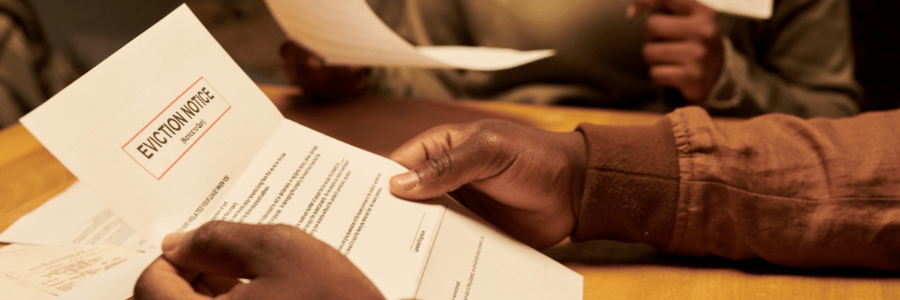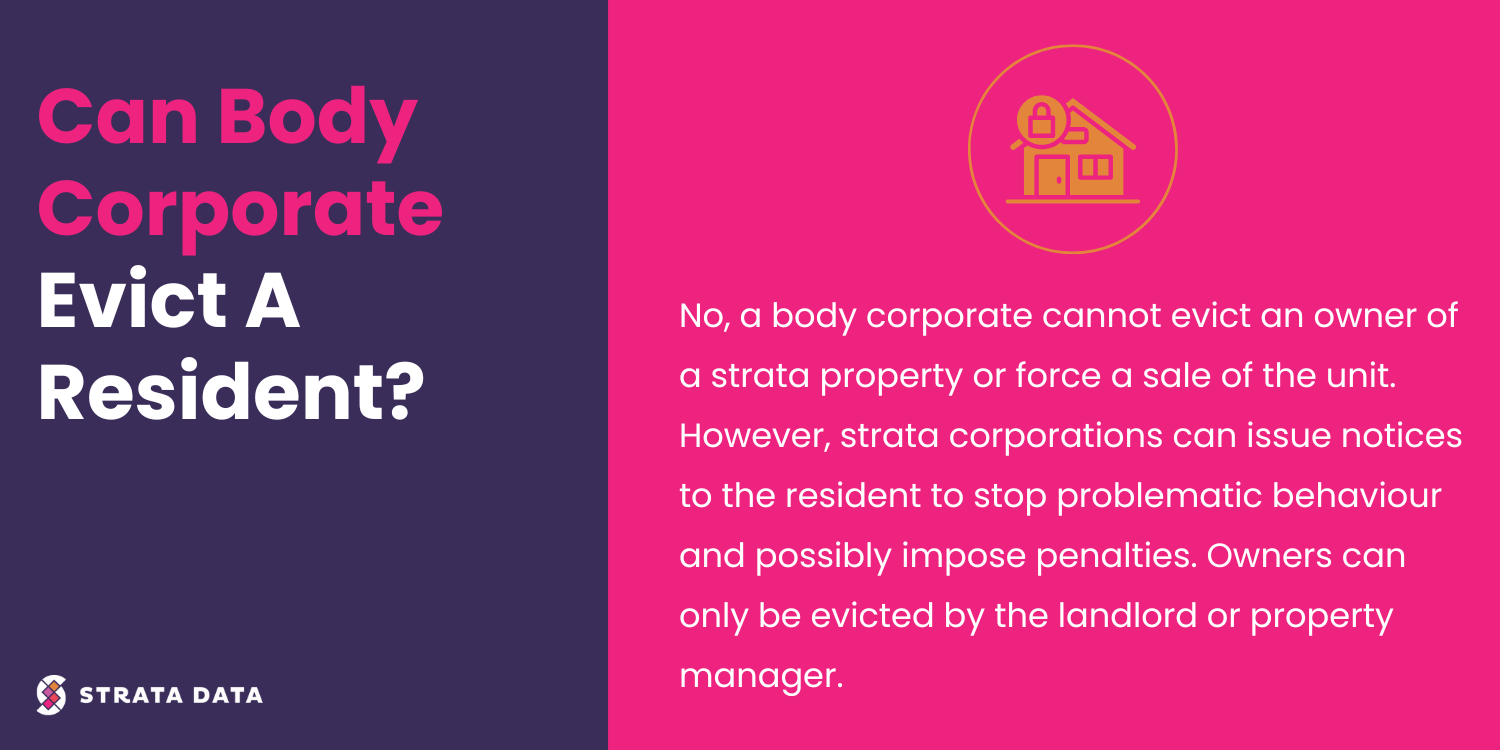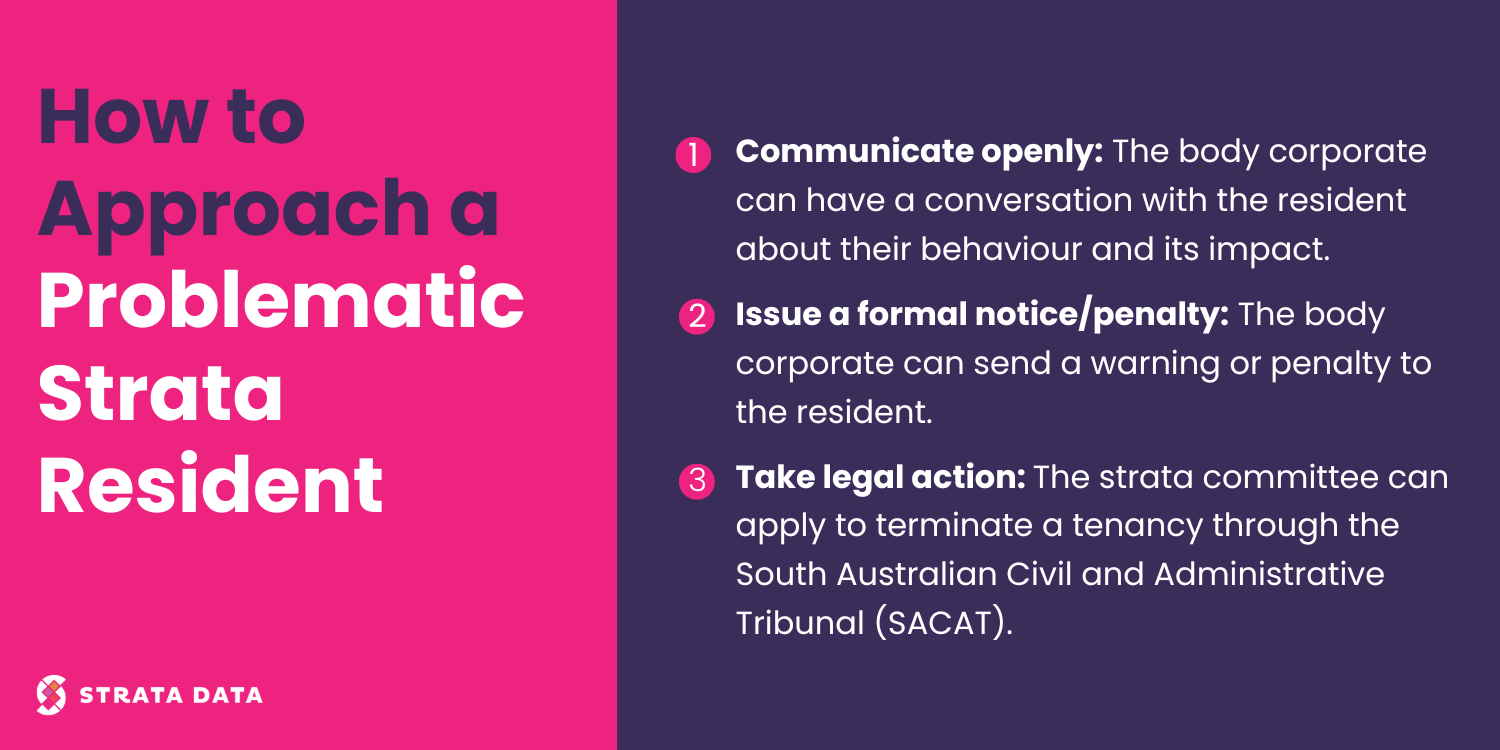Can Body Corporate Evict an Owner or Tenant?

Dealing with residents who repeatedly disrupt a strata community can be challenging. Strata corporations and committees have specific powers to address such behaviour, including issuing notices, imposing penalties, and, in serious cases, taking action that can lead to eviction.
Eviction Rules for Strata Owners and Tenants
So, if there is a problematic resident in a strata building, can they be evicted?
A body corporate cannot evict the owner of a strata property or force a sale of the unit – the owner has a legal right to the property. Strata corporations in South Australia can issue notices to the owner to stop offending behaviour and may also be able to impose penalties to discourage further violations of strata bylaws.
A body corporate cannot directly evict tenants, as this responsibility lies with the landlord or property manager. However, the body corporate can take action against tenants that may result in an eviction order, whether from the landlord or a court order.
When Can Strata Take Action Against Owners and Tenants?
Strata corporations and committees are awarded legal powers under the Strata Titles Act 1988 and the Community Titles Act 1996 to create a set of bylaws or articles – these bylaws or articles outline the permitted behaviour and responsibilities of all strata residents to provide an amicable living environment for everyone.
When owners or tenants breach the articles or bylaws, the strata corporation or committee can issue a formal notice to comply. If the articles or bylaws continue to be breached, the body corporate may be able to impose a penalty against the offending resident.
All strata titles have articles or bylaws that restrict owners and tenants from behaving in a way that affects the enjoyment and peace of other residents. Schedule 3 of the Strata Titles Act 1988 provides an example of such bylaws:
Strata residents must not:
- obstruct the lawful use of the common property by any person
- use the common property in a manner that unreasonably interferes with the use and enjoyment of the common property by the other members of the strata community, their customers, clients or visitors
- make, or allow his or her customers, clients or visitors to make, undue noise in or about any unit or the common property
- interfere, or allow his or her customers, clients or visitors to interfere, with others in the enjoyment of their rights in relation to units or common property
A penalty of up to $500 can be imposed against an owner or tenant who breaches these bylaws, if provision has been made for this.
Similar penalties apply if the tenant of a unit uses the unit for illegal purposes, such as drug trafficking or manufacturing. Illegal activity also serves as grounds for an eviction order from the South Australian Civil and Administrative Tribunal.
How to Approach a Problematic Strata Owner or Tenant
Strata residents who cause a nuisance or interfere with the reasonable peace in the strata community can be challenging to deal with, particularly if there have been repeated breaches in the articles or bylaws.
Communicate Openly
The body corporate can establish an open and honest conversation with the resident about the impact of their behaviour on other residents. This step can prevent the unruly behaviour from escalating if addressed early on.
If the resident is a tenant, the body corporate can notify the landlord of the issue. The landlord is responsible for ensuring that the tenant does not persist in the behaviour. Otherwise, the landlord can evict the tenant from the strata property.
Issue a Formal Notice/Penalty
If the behaviour continues, the body corporate can issue a formal notice to the resident as a warning or potentially impose a penalty. The date set for payment of the penalty must be at least 60 days after the date the notice is served. If the resident does not pay the penalty, the body corporate can claim it as a debt and recover it through the Magistrates Court.
The resident can also challenge the amount of the fine or the time to pay the fine through the Magistrates Court.
Take Legal Action
If the breach continues despite fines, the strata committee can apply to the South Australian Civil and Administrative Tribunal (SACAT) to get a legally binding order to terminate a tenancy (s90 Residential Tenancies Act 1995). Applying to SACAT is the only way a body corporate can evict a tenant.
Getting Support From Strata Management Services
Dealing with a difficult strata resident may require navigating complex legal processes that committee members are not familiar with. In these cases, the support of a strata management company can help resolve the issue and get the living environment back to normal for all residents.
Strata Data provides strata management services in South Australia to help strata titles deal with disputes and problematic residents both quickly and effectively. We support over 1,300 corporations and over 12,000 owners in South Australia, and have been awarded the 2025 Strata Community Excellence – Strata Community Management Large Business Award by the SCA Australasia National Awards.





